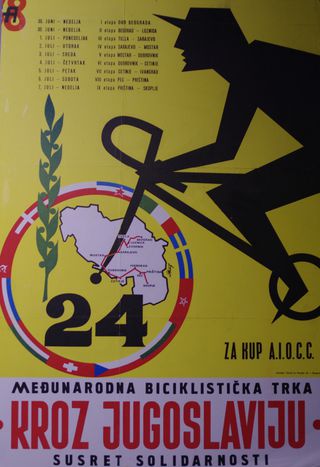
Arab spring 2011 and Europe’s fall of communism in 1989
Published on
As the Maghreb goes through its transitions, a look at the lessons learned from central and eastern Europe. Opinion from Daniel Novotny, deputy director of the research centre at the association for international affairs in Prague
democThe Maghreb is facing a wave of upheavals which has had a profound effect on the political-security situation in the region. It is not surprising that some Maghrebian political scientists and economists have posited that their region could learn important lessons from the European post-communist countries’ own democratic wave of 1989. There are differences when it comes to human development, security challenges and the nation building process. Yet when it comes to economic development and political transition, both regions share striking similarities.
Non-violent, democratic transitions
The transition was never going to be a smooth and painless process. Although central and eastern European (CEE) countries were burdened by the consequences of two world wars and a forty-year long communist rule, they were not completely disconnected from their western European neighbours. They achieved their democratic transition by non-violent means and successfully adopted the multi-party political system. Maghreb countries can learn that the transition from the totalitarian regime to a pluralistic one must involve establishing free media, institutions which are capable of delivering the rule of law and respect for human and civil rights while concurrently preventing at least the most flagrant cases of corruption and abuses of power from occurring. Responsive and responsible elites are important.
CEE countries avoided ‘balkanisation’
This is the fragmentation process of the former Yugoslavia into smaller mutually hostile political entities. For example, the Czech Republic separated from Slovakia without passing through wars, racial or ethnic conflicts. Peaceful transition in the region was accomplished through effective conflict resolution and the protection of minorities. Both must be adopted by the Maghreb states if they are to achieve the most rewarding integration. If the Arab Maghreb Union is to live up to the expectations of many of the region’s citizens and North Africa is to become a stable and friendly environment for foreign investments, the Western Sahara conflict (between Morocco and Algeria) must be resolved.
CEE countries successfully promoted NGO networks
To ensure the security of their citizens, the Maghreb countries have to attempt to build the ‘security from below’ by promoting the well-being of their various ethnic and social groups. All groups should be provided with at least minimal social support, the resources divided equally and the access to power is not exclusive.
Regional integration
Close cooperation would enable the Maghreb countries to stimulate sustainable growth of their economies and enhance their negotiating position vis-à-vis the European union. Improving infrastructure would enhance competitiveness and attract more foreign investors. The CEE region underwent industrialisation and modernisation processes from the 19th century onwards, whereby the four decades of communist rule fortunately did not lead to a complete disruption of the trade links and existing infrastructure connecting it with western European markets.
The process of rebuilding and reinforcing the CEE region’s ties with their western European neighbors was also facilitated by the relatively successful integration initiative called the Visegrád Group launched by the Czech Republic, Hungary, Poland and Slovakia. Post-communist countries should seriously consider launching an ‘experience sharing process’ which would allow the North African countries to avoid some of the pitfalls that line the tortuous path from an authoritarian to a democratic regime, while the CEE countries, for their part, could promote their position and diplomatic standing in the Maghreb region.
The author of this article is affiliated with the association for international affairs in Prague
Image: (cc) Numerius/ Anders/ Flickr



